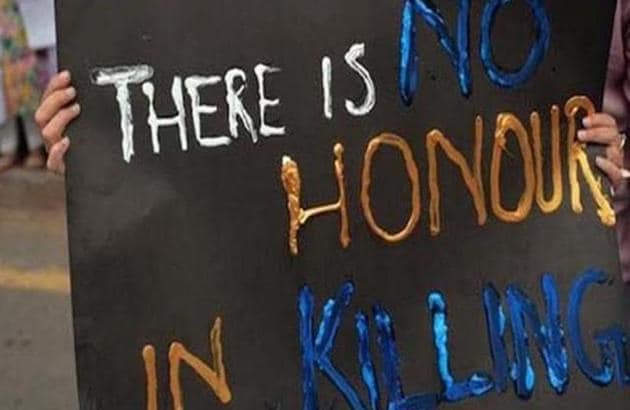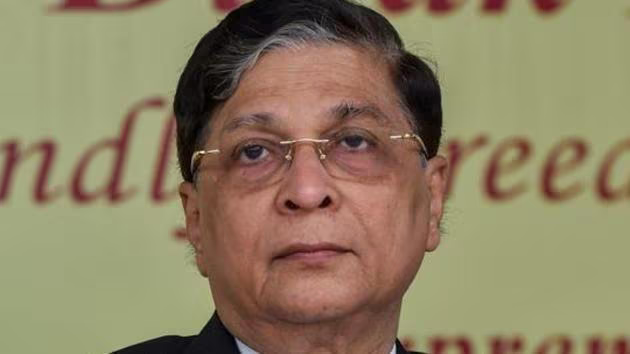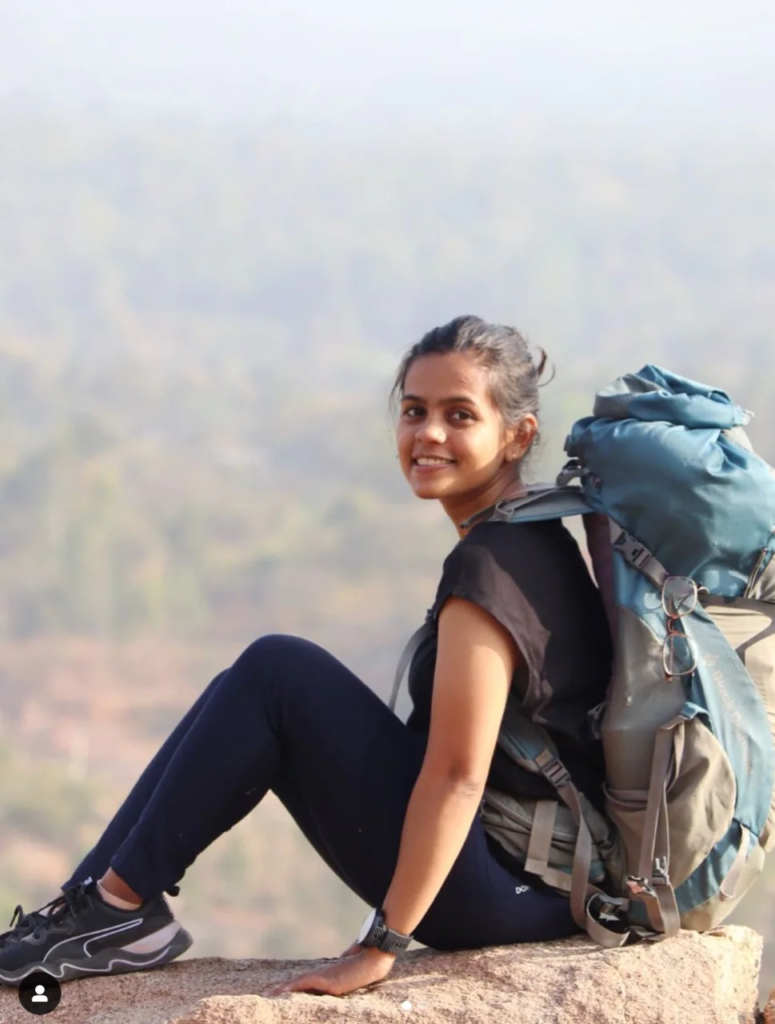
They studied in the same school and had known each other for 11 years. She is Muslim, he a Dalit from the Mala community. When they declared their intention to marry, her family said a flat-out no. On January 30, she left home and a day later married the love of her life at an Arya Samaj temple. Her family filed a missing person’s report at the police station.
B. Nagaraju, 25 and his wife, Ashrin Sultana, 25, told the superintendent of police, Vikarabad district that they feared for their lives. The police told her parents to stay away from them.
But the couple was taking no chances and moved to Vishakapatnam, Andhra Pradesh. Then roughly a week ago, they returned to Hyderabad, some 100 km from their village, where Nagaraju had got a job as a salesman with a car showroom. Still worried about his wife’s safety, he would drop her off at her sister’s when he went to work.
On May 4, at 8.45 pm, the couple was returning home on their motorcycle when they stopped at a crossing. Assailants on two motorcycles attacked Nagaraju with iron rods, stabbing him to death after he fell to the ground while his horrified wife screamed for help.
Police have arrested two men, including Ashrin’s elder brother Mubin Syed and cousin Mohammad Masood Ahmed.
On May 6, Ashrin visited her husband’s parental home for the first time since her marriage, clutching in her hands a portrait of Nagaraju.
Modern India’s shame

Between 2014 and 2015, the National Crime Records Bureau (NCRB) recorded a 792% spike in dishonour killings from 28 to 251 with Uttar Pradesh accounting for 68% of these killings.
In August 2021, minister of state for home, Ajay Kumar Mishra told Parliament there had been 145 dishonour killings between 2017 and 2019.
Vincent Kathir of Evidence, a Tamil Nadu-based NGO, says the figure is much higher with 70% of the victims women.
A 2012 Law Commission report defines these killings as “incidents of violence and harassment caused to [a] young couple intending to marry or having married against the wishes of the community or family members.” These murders are carried out most often by the couple’s own family and sometimes at the behest of khap panchayats that have no legal recognition.
The report recommended a separate law to try these crimes and even proposed a bill called the Prevention of Interference with the Freedom of Matrimonial Alliances (in the name of honour and tradition). The bill was introduced in Parliament in 2015 but lapsed without ever being brought up.
Supreme Court ruling

In 2018, then chief justice Dipak Misra in a scathing 54-page ruling said, the “human rights of a daughter, brother, sister or son are not mortgaged to the so-called or so-understood honour of the family or clan or the collective.”
He made a slew of recommendations including moving the trial of such killings to fast-track courts. The judgment asked police to either prevent khap panchayat meetings from taking place or being present at such meetings in order to counsel families and record proceedings.
It asked the government to sensitise law enforcement to prevent such violence. It recommended the setting up of safe houses for couples at every district. It recommended the creation of special cells and a 24-hour helpline.
Freedom to love

At the heart of every dishonour killing lies the question of agency. Children, particularly girls, are brought up to be obedient and filial duty remains a cherished family ideal.
In December 2021, a 17-year-old boy decapitated his pregnant 19-year-old sister with a sickle. Then he posed for a selfie with her head. Even though she had married a man of the same caste, her family was reportedly upset because it was a love marriage.
In a country, where 93% of all people still have marriages arranged by their parents in keeping with faith, caste and socio-economic lines, the idea that young people might fall in love outside these boundaries remains exceptional and, sometimes, deadly.
Notwithstanding the Supreme Court’s 2018 ruling, the judiciary’s own stand has been ambiguous. In 2017, the Kerala High Court annulled the marriage of a 24-year-old woman who had converted to Islam and then married a Muslim man on the grounds that she was ‘weak and vulnerable, capable of being exploited in many ways’. It took the Supreme Court to reverse that ruling for Hadiya to return to the husband she had chosen.
Under the name of preventing religious conversion by fraud, already illegal in this country, ‘love jihad’ laws too subscribe to the idea that adult women are liable to be misled by wily men. No evidence of this so-called love jihad has ever been presented and the National Investigating Agency told the Supreme Court in 2018 that it had no evidence of it in Kerala while investigating the Hadiya case.
Yet, with stringent punishments in place, in 10 states it is now virtually impossible for inter-faith couples to marry both by law and by right-wing lynch mobs that act with impunity.
GOING PLACES

Picture credit : @priyankamohite11/ Instagram
At 4.52 pm on May 4, Priyanka Mohite stood on top of Mount Kanchenjunga, 8586 m above sea level. In doing so, she became the first Indian woman to scale five peaks above 8,000 mts. The 29-year-old from Satara is a recipient of the Tenzing Norgay National Adventure award for 2020.
GENDER TRACKER

Number of pregnancies every year in India: 48.1 million
Number of unintended pregnancies: 24 million
Number of abortions: 16 million
Number of illegal abortions*: 12.3 million (78% of all abortions)
Number of unsafe abortions: 800,000
(**Illegal under the Medical Termination of Pregnancy Act, 1971 as they occur outside of healthcare facilities.)
Source: Legal Barriers to Accessing Safe Abortion Services in India, a fact-finding study by Aparna Chandra, Mrinal Satish, Shreya Shree and Mini Saxena published by the National Law School of India, Bengaluru
SEE

Susie Freeman’s Jubilee, first created in 2000, is a hand-knitted wedding dress made of 80 denier nylon monofilament. Enclosed in rows of tiny mesh pockets are 6,279 contraceptive pills. Allowing for a couple of breaks to have children this would provide a lifetime of contraception to women from the age of 22 to 50.
STORIES YOU MIGHT HAVE MISSED
A 13-year-old Dalit girl went to the police station to file a complaint of gang rape. Here’s what happened next

On April 27, a 13-year-old Dalit girl went to the Pali police station in UP’s Lalitpur district to lodge a complaint of gang-rape. There she says she was raped again by the station house officer, Tilakdhari Saroj.
Based on the chilling details narrated by the girl to a non-government organisation, Saroj and five others have been arrested. All 29 people posted at the police station have also been suspended.
The girl, according to the first information report, was taken to Bhopal by four men apparently to prevent her from testifying in court in an old dispute involving her father and one of the men. There she was raped for three days before being brought back to her village on April 26. A day later, Saroj asked her aunt to bring her to the police station to record her statement where she says she was raped by him and then handed over to her aunt who was apparently working with the accused.
According to National Crime Records Bureau data released in September 2021, rape figures for Dalit women dropped by an average of 6.2% across in India but rose by 3.4% in UP between 2019 and 2020. UP in fact tops the list of crimes against women with the maximum number of 49,385 cases registered in 2019.
Women feel less safe than men, spend more on the Mumbai metro

A study of commuters travelling on Mumbai’s first metro corridor between Versova and Ghatkopar finds that only 35% of women felt that access routes to the stations are safe compared to more than 50% of men who felt safe on the same routes.
Released by the Mumbai Metropolitan Region Development Authority, the study also revealed that women who take the metro to work spend 21% more on a trip than men. The reasons for this include expensive or multiple mode choices owing to a shortage of time, a sense of personal safety, accompanying dependents and undertaking multiple activities on the same trip (trip chaining).
Pregnant woman raped in Andhra Pradesh

Three men, including a minor are reported to have raped a pregnant woman at a railway station in Repalle. The men also beat up the woman’s husband, who like her is a migrant farm worker. All three men have been arrested.
FIELD NOTES
Who does the housework when women earn more than their husbands?

Who does the housework when women start earning more than their husbands? You would imagine that husbands would pitch in a bit more. But a new study by Joanna Sydra at the University of Bath School of Management, UK, turns that assumption on its head. Time spent by men on housework correspondingly decreases when his wife becomes the primary earner.
This is more so with couples who have children. Parenthood has a ‘traditionalising’ effect on housework with new mothers taking on more housework than their husbands. “Children are costly in terms of time and money, their presence increases the demand for housework and therefore the demand for efficiency,” Sydra writes. The traditional notion that mothers took care of the house while fathers went out to earn is no longer the ‘optimal solution’ with female labour force participation rising (not in India though). To compensate for this traditional role reversal when mothers earn more than their husbands, they tend to increase their domestic labour to ‘reaffirm threatened identities and increase traditionality in their relationship’.
Read the paper here.
AROUND THE WORLD
Repealing Roe

A leaked US Supreme Court opinion by conservative judge Samuel Alito to strike down a 1973 decision that guaranteed constitutional protections of abortion rights has stirred a storm. Published by political website Politico, Alito writes that the ruling on Roe v Wade, which gave American women the right to abortion, was ‘egregiously wrong’ and ‘must be overruled’.
Of the nine judges on the Supreme Court bench, six have been appointed by Republicans, five of whom, the leak reveals, are in favour of repealing Roe. If passed later this summer, this would result in a regression of abortion rights in 26 American states that would impact 36 million women of reproductive age, reports The Economist.
Already 22 states have introduced bills restricting abortion. In Texas, clinics have stopped performing abortions since September 1, leaving women who need one with no choice but to travel across state borders. Women’s March, which in 2017 organised the biggest political anti-Donald Trump march, has asked supporters to show up in courts and town halls.
Read Prashant Jha’s explainer on the significance of over-turning Roe v Wade here.
Depp v Heard

The libel trial of actor Johnny Depp against his ex-wife and actor Amber Heard continues with Heard taking the stand to tell the court, “This is the most painful and difficult thing I’ve gone through.”
Earlier, the court heard details of horrific violence, including multiple acts of sexual assault by Depp reports Associated Press.
Depp has accused Heard of falsely claiming in a newspaper op-ed piece that she was a victim of domestic violence. He claims that she suffers from borderline and histrionic personality disorders. He is suing Heard for $50 million. Heard has countered by suing Depp back for $100 million.
| Were you forwarded this email? Did you stumble upon it online? Sign up here. |
| That’s it for this week. If you have a tip or information on gender-related developments that you would like to share write to me at: namita.bhandare@gmail.com. |